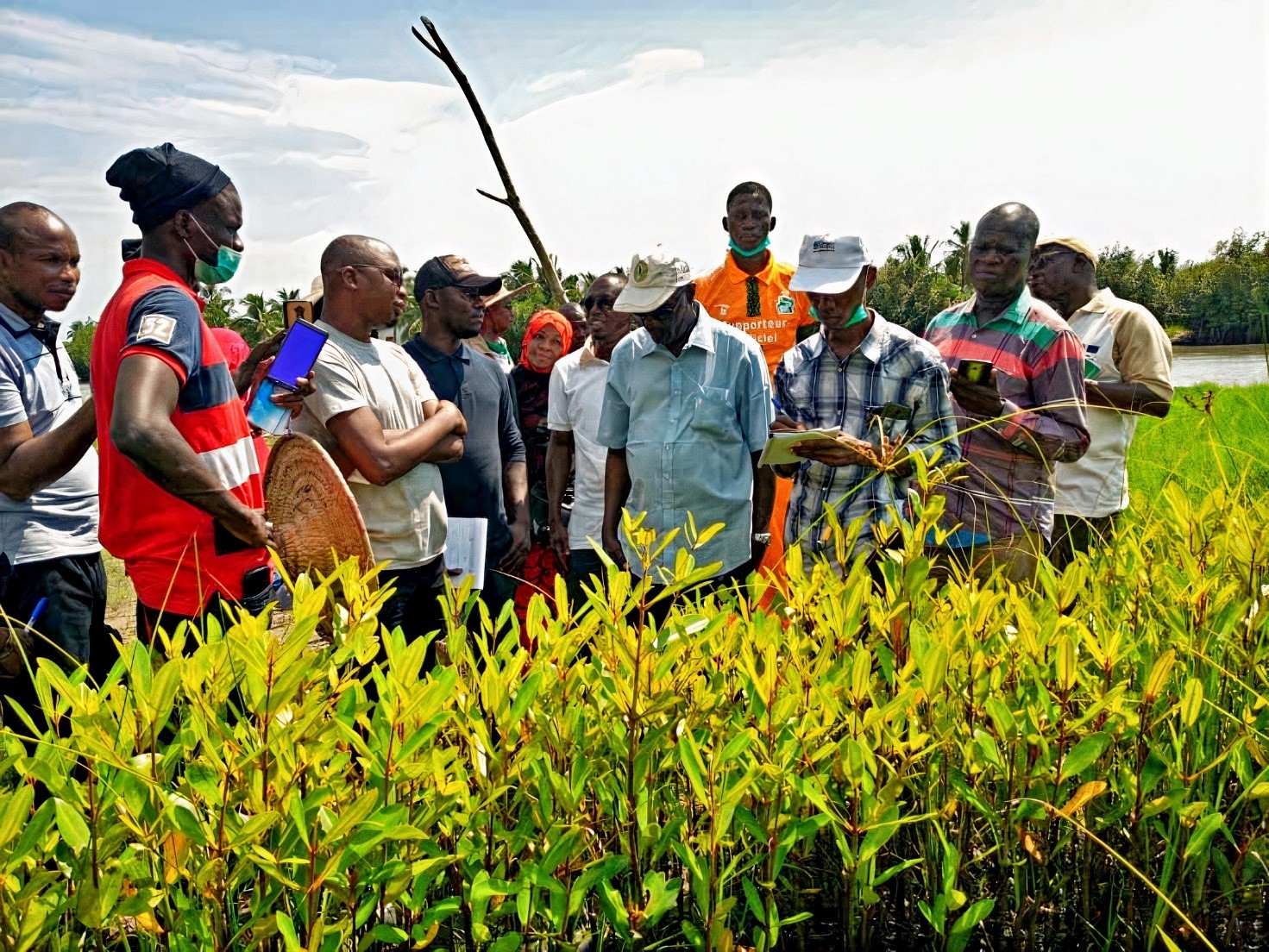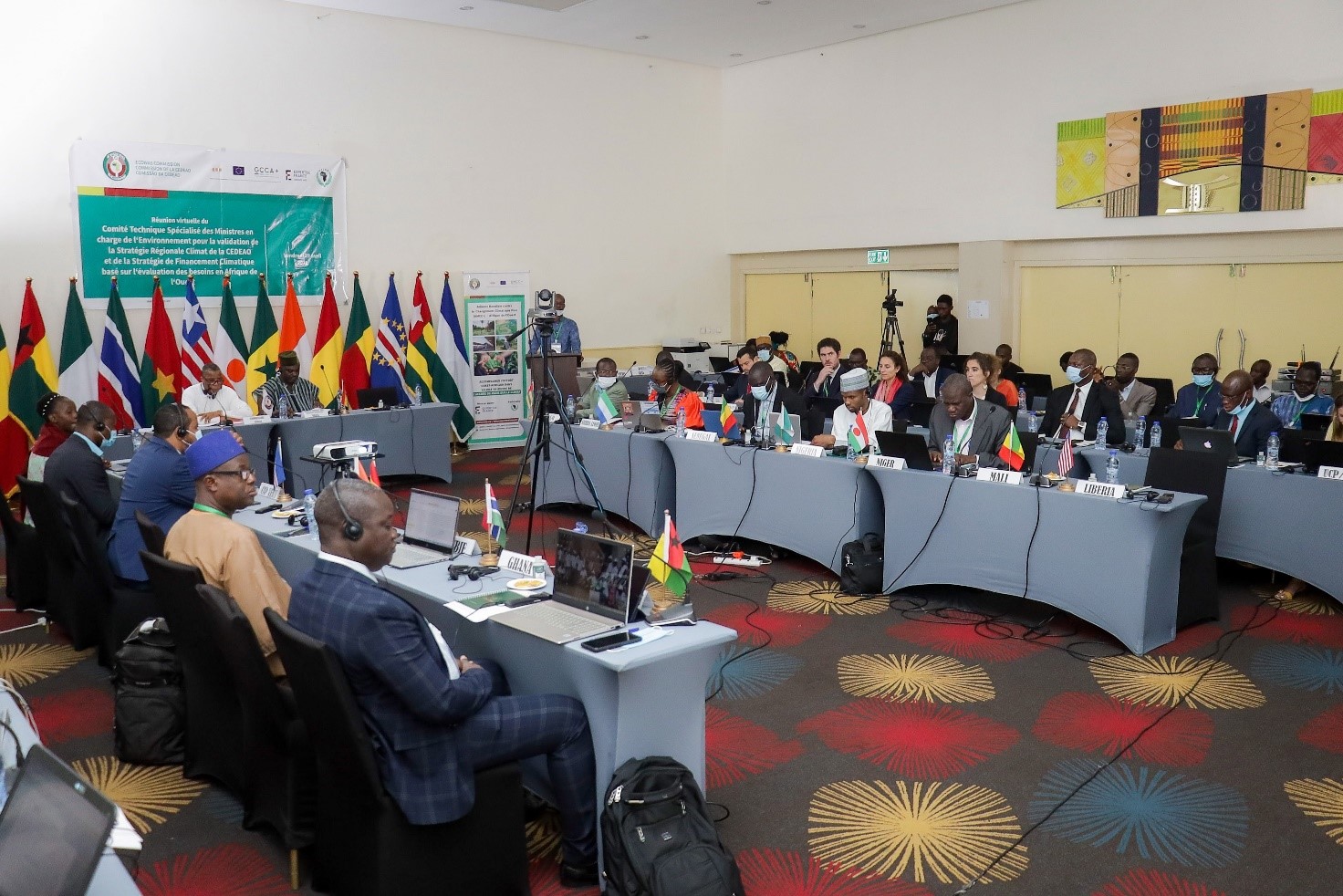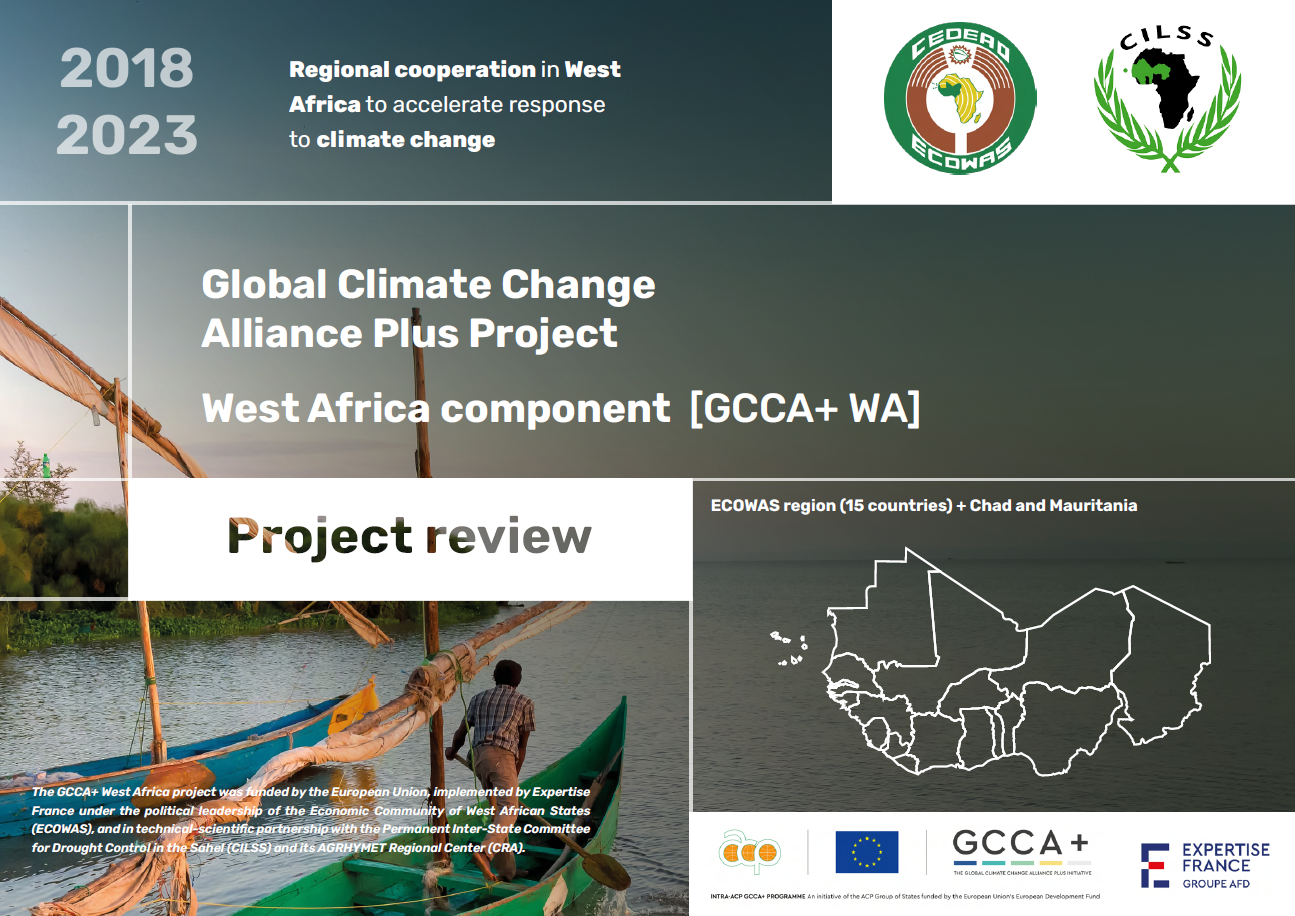Closure of the GCCA+ West Africa project: 5 years to structure region-wide climate action and make climate a shared priority
The Global Climate Change Alliance Plus project, West Africa component (GCCA+ WA), which ran between 2018 and 2023, is coming to an end. Funded by the european Union and implemented by Expertise France, this project was carried out under the political leadership of the ECOWAS Commission, with the technical-scientific support of the Permanent Inter-State Committee for Drought Control in the Sahel (CILSS). Aimed both at contributing to the regional effort to implement the Paris Agreement and at strengthening West Africa's resilience to climate change, the GCCA+ WA project has supported the structuring of regional climate action in West Africa, equipping regional institutions and the 17 member states of the ECOWAS-CILSS zone with operational and coordination tools to meet the climate challenge.
A regional response to the climate challenge
The climate emergency is here. Although the African continent is the world's lowest emitter of greenhouse gases, it is nonetheless suffering major impacts. In West Africa, the rise in temperature is 1.5 times higher than at global level. The negative impacts of climate change in West Africa are transboundary. Consequently, adaptation and low-carbon development measures in response to climate change require enhanced cooperation and solidarity across the region.
The project's major innovation: fostering regional cooperation on climate in West Africa
The challenge of the GCCA+ WA project was to amplify cooperation across the West African region to accelerate the response to climate change. The five years and the various activities carried out to meet this challenge have above all demonstrated the added value of the supranational level in implementing the Paris Climate Agreement.
In addition, as Mrs Massandje Touré-Litsé, Commissioner for Economic Affairs and Agriculture at the ECOWAS Commission, explains :
 the fight against climate change requires immediate, decisive and profoundly transformative action in all sectors and by all stakeholders - public, private and civil society - hence the need to decompartmentalize climate action to make it everyone's business. This is why ECOWAS is committed, through the GCCA+ WA project, to working alongside its member states and partners to structure climate cooperation at regional level
the fight against climate change requires immediate, decisive and profoundly transformative action in all sectors and by all stakeholders - public, private and civil society - hence the need to decompartmentalize climate action to make it everyone's business. This is why ECOWAS is committed, through the GCCA+ WA project, to working alongside its member states and partners to structure climate cooperation at regional level  .
.
In concrete terms, the achievements of the GCCA+ WA project have been multidisciplinary, and rooted in the reality of needs thanks to a multi-stakeholder dynamic: member states, representatives of civil society, representatives of farmers' organizations, scientists, regional organizations, regional development banks, have all worked closely together in the service of ambitious, coherent and long-term climate action.
Focus on climate-smart agriculture
Agriculture is an essential part of the West African region's economy. Adapting the sector to climate change is a priority for the region's security.
Among the various activities carried out, the GCCA+ WA project has therefore focused strongly on supporting innovation for climate-smart agriculture (CSA), which helps to empower producers. 15 projects have been launched and supported, involving almost 7,700 households in 11 ECOWAS-CILSS countries, with a total budget of 3.2 million euros. The projects selected were chosen on the basis of their ability to spread, their innovative nature and the fact that they were supported by several players working in partnership. The choice of location enabled to cover the entire ECOWAS-CILSS area, thanks to synergies with pilot projects carried out within the framework of the Agroecology program of the ECOWAS Regional Agency for Agriculture and Food (ARAA). The feedback and lessons learned from these agricultural projects are now shared in a series of guides and capitalization documents (to be found in the project review and on the ECOWAP and ARAA websites).

A Regional Climate Strategy to set an ambitious climate action framework for West Africa
Developed in a participatory manner and adopted at the highest level during the ECOWAS Council of Statutory Ministers in July 2022, the first ECOWAS Regional Climate Strategy sets regional climate change mitigation and adaptation objectives broken down by sector, and includes a vision for 2050 and an action plan for 2022-2030. The Regional Climate Strategy provides a solid basis for transformative action across the region in response to climate change. Its implementation by ECOWAS, alongside and in support of its member states, will ensure that all regional policies and projects are compatible with the Paris Climate Agreement and contribute to the region's resilience to the effects of climate change, which are already very present.
The process was matured and completed with the support of the GCCA+ WA project, mandated by the ECOWAS Commission for this purpose, which brought together all West African regional stakeholders for its elaboration.

The essential mobilization of climate finance to support regional development compatible with the commitments of the Paris Climate Agreement
The GCCA+ WA project has worked to facilitate the scaling-up of climate finance in the region through several tools for monitoring and accessing climate finance (mapping of financial flows, capacity-building and training of executives in setting up climate projects, financing of innovative agricultural projects, access of several West African institutions to the Green Climate Fund, etc.).
In addition, to catalyze climate finance with ECOWAS and facilitate the implementation of the Regional Climate Strategy, the project supported the architecture of a roundtable of technical and financial partners of the ECOWAS Commission with a first meeting held in June 2023. The meeting had two main aims: to raise funds for the implementation of the Regional Climate Strategy's 2022-2030 action plan, with a regional funding requirement of 126.6 million USD, and to set up the "Climate Donors Group", a permanent coordination mechanism for donors working in the region. The presence of many technical and financial partners at this meeting marks their desire to better coordinate their programs and commitments at regional level in support of climate action.
Training, climate finance, regional coordination mechanisms...tangible results achieved between 2018 and 2023
Discover all the achievements of the GCCA+ AO project by consulting the activity-by-activity report :
Outlook: international cooperation must continue to support climate action in the West African region
All the achievements of the GCCA+ WA project will be perpetuated and institutionalized as part of the implementation of the ECOWAS Regional Climate Strategy, which sets targets for 2030 and 2050, and will thus enable the operationalization of essential regional projects and federate the commitment of the region's stakeholders. However, as Jérémie Pellet, Managing Director of Expertise France, points out:
 while the project has made a major contribution to structuring a solid foundation for advancing regional climate action with a medium- and long-term outlook, the needs remain colossal to respond to climate change in the region. International cooperation must continue to work with West African regional institutions and member states to support climate action in the region, in particular by joining the Climate Donors group initiated by ECOWAS, to facilitate the financing of its Regional Climate Strategy.
while the project has made a major contribution to structuring a solid foundation for advancing regional climate action with a medium- and long-term outlook, the needs remain colossal to respond to climate change in the region. International cooperation must continue to work with West African regional institutions and member states to support climate action in the region, in particular by joining the Climate Donors group initiated by ECOWAS, to facilitate the financing of its Regional Climate Strategy. 
AFD Group, in line with its commitment to ensure that its activity is 100% compatible with the Paris Agreement, will pursue its involvement alongside regional institutions and the States of West Africa, intensifying and diversifying its action in favor of low-carbon development and better adaptation to climate change in the region.
Read also : ECOWAS: Implementing a Regional Climate Strategy



